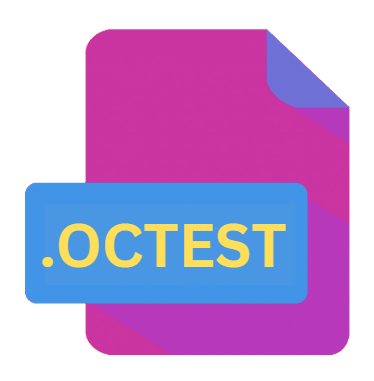.OCTEST File Extension

Xcode Objective-C Unit Test Bundle
| Developer | Apple |
| Popularity | |
| Category | Developer Files |
| Format | .OCTEST |
| Cross Platform | Update Soon |
What is an OCTEST file?
.OCTEST files are associated with Xcode, Apple’s IDE for macOS, iOS, iPadOS, watchOS, and tvOS development.
They serve as containers for Objective-C unit test bundles, which are collections of test cases and classes designed to validate the functionality of Objective-C code.
More Information.
The history of .OCTEST files are intertwined with the evolution of Xcode and the broader Objective-C development community.
They were introduced to facilitate unit testing within Xcode projects, enabling developers to create and execute test cases seamlessly.
This initiative aimed to improve code quality, foster a culture of testing, and enhance the overall reliability of Objective-C applications.
Origin Of This File.
The .OCTEST file extension is a product of Apple’s development ecosystem, specifically tailored for Xcode and the Objective-C programming language.
With the rise of unit testing as an essential practice in software development, Apple introduced this file format to streamline the testing process within Xcode projects.
File Structure Technical Specification.
.OCTEST files are essentially bundles, which means they are directories disguised as single files. Within these bundles, various components essential for unit testing in Xcode are organized. The technical specifications of .OCTEST files include:
- Test Classes: These are Objective-C classes containing methods that serve as individual test cases. Developers write these test classes to verify the behavior of specific components or functionalities within their codebase.
- Test Methods: Within test classes, developers define test methods, each of which tests a specific aspect of the code. These methods utilize assertions to verify that the actual output matches the expected outcome.
- Supporting Files: .OCTEST files may also include supporting resources such as mock objects, test data, and configuration files necessary for executing the tests.
- Metadata: Metadata within .OCTEST files may include information about the test bundle, such as its name, version, and any dependencies.
How to Convert the File?
Converting .OCTEST files to other formats or frameworks may be necessary for various reasons, such as interoperability with different testing environments or migration to alternative development platforms. Here are some general steps to convert .OCTEST files:
- Assess Compatibility: Before converting .OCTEST files, ensure compatibility with the target framework or testing environment. Consider factors such as programming language support, testing methodologies, and feature parity.
- Choose Conversion Tool: Depending on the target format or framework, different conversion tools or approaches may be available. Research and select the most appropriate tool for your specific conversion needs.
- Export Test Cases: If possible, export individual test cases from .OCTEST files in a format compatible with the target framework. This may involve extracting test methods, assertions, and supporting resources.
- Rewrite Tests: In some cases, direct conversion may not be feasible due to differences in syntax, semantics, or architectural principles between .OCTEST and the target framework. Consider rewriting test cases using the conventions and idioms of the new environment.
- Refactor Code: As part of the conversion process, refactor any code dependencies, configuration settings, or integration points affected by the change in testing frameworks. Ensure that the converted tests maintain the same coverage and functionality as the original .OCTEST files.
- Verify Compatibility: After converting the .OCTEST files, thoroughly test the converted test cases to ensure they behave as expected in the target environment. Address any discrepancies or issues that arise during testing.
- Update Workflows: Update development workflows, continuous integration pipelines, and version control systems to accommodate the new testing framework or format. Ensure that team members are familiar with the updated processes and tools.
- Document Changes: Document the conversion process, including any modifications made to the test cases, dependencies resolved, and lessons learned. This documentation will aid in troubleshooting, knowledge sharing, and future maintenance efforts.
By following these steps, developers can successfully convert .OCTEST files to alternative formats or frameworks, enabling greater flexibility and interoperability in their testing practices.
Advantages And Disadvantages.
Advantages:
- Integration with Xcode: .OCTEST files seamlessly integrate with Xcode, allowing developers to create, manage, and execute unit tests within the familiar IDE environment.
- Automated Testing: With .OCTEST files, developers can automate the testing process, ensuring that new code changes do not introduce regressions or unexpected behavior.
- Code Quality Assurance: By writing unit tests using .OCTEST files, developers can improve the overall quality and stability of their Objective-C codebase, leading to more robust applications.
Disadvantages:
- Limited to Objective-C: .OCTEST files are specifically designed for Objective-C unit testing and may not be directly applicable to projects using other programming languages or testing frameworks.
- Learning Curve: For developers new to unit testing or Xcode, there may be a learning curve associated with understanding how to create and manage .OCTEST files effectively.
How to Open OCTEST?
Open In Windows
- Virtualization: Use virtualization software such as VMware or VirtualBox to create a virtual machine running macOS. Install Xcode within the virtual machine to open and work with .OCTEST files.
- Cloud-Based Services: Utilize cloud-based macOS environments offered by services like MacStadium or Amazon EC2. Access these environments via remote desktop or SSH to run Xcode and handle .OCTEST files.
Open In Linux
- Wine: Try using Wine, a compatibility layer that allows running Windows applications on Linux. While not guaranteed, some users have reported success running Xcode under Wine, which may enable opening .OCTEST files.
- Virtualization or Cloud Services: Similar to Windows, use virtualization software or cloud-based macOS environments accessible from Linux to run Xcode and handle .OCTEST files.
Open In MAC
- Xcode: .OCTEST files are designed to be opened and managed within Xcode, Apple’s IDE for macOS. Simply double-click on the .OCTEST file, or open it from within Xcode to access its contents and execute unit tests.
Open In Android
Open In IOS
- Xcode: Just like on macOS, .OCTEST files can be opened and executed within Xcode on iOS devices. Developers can run unit tests directly on iOS devices or simulators to validate their code.













